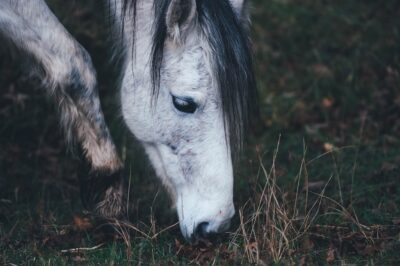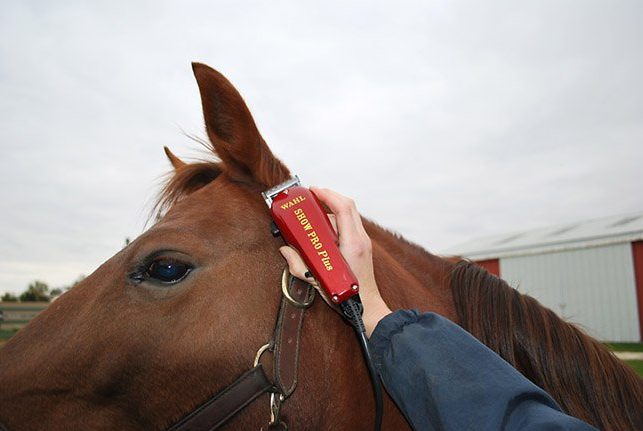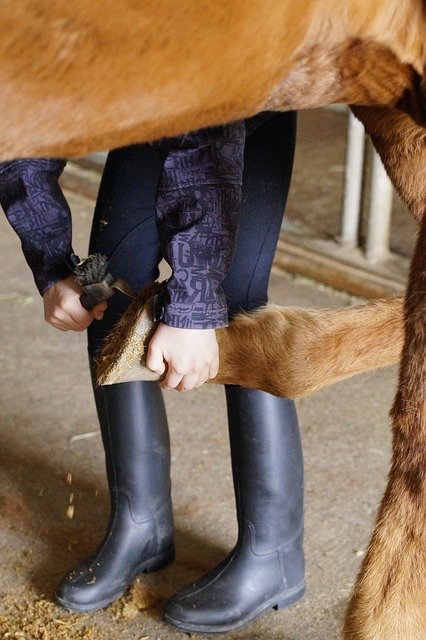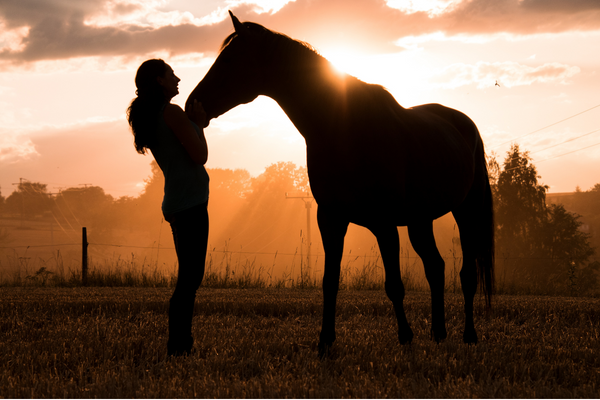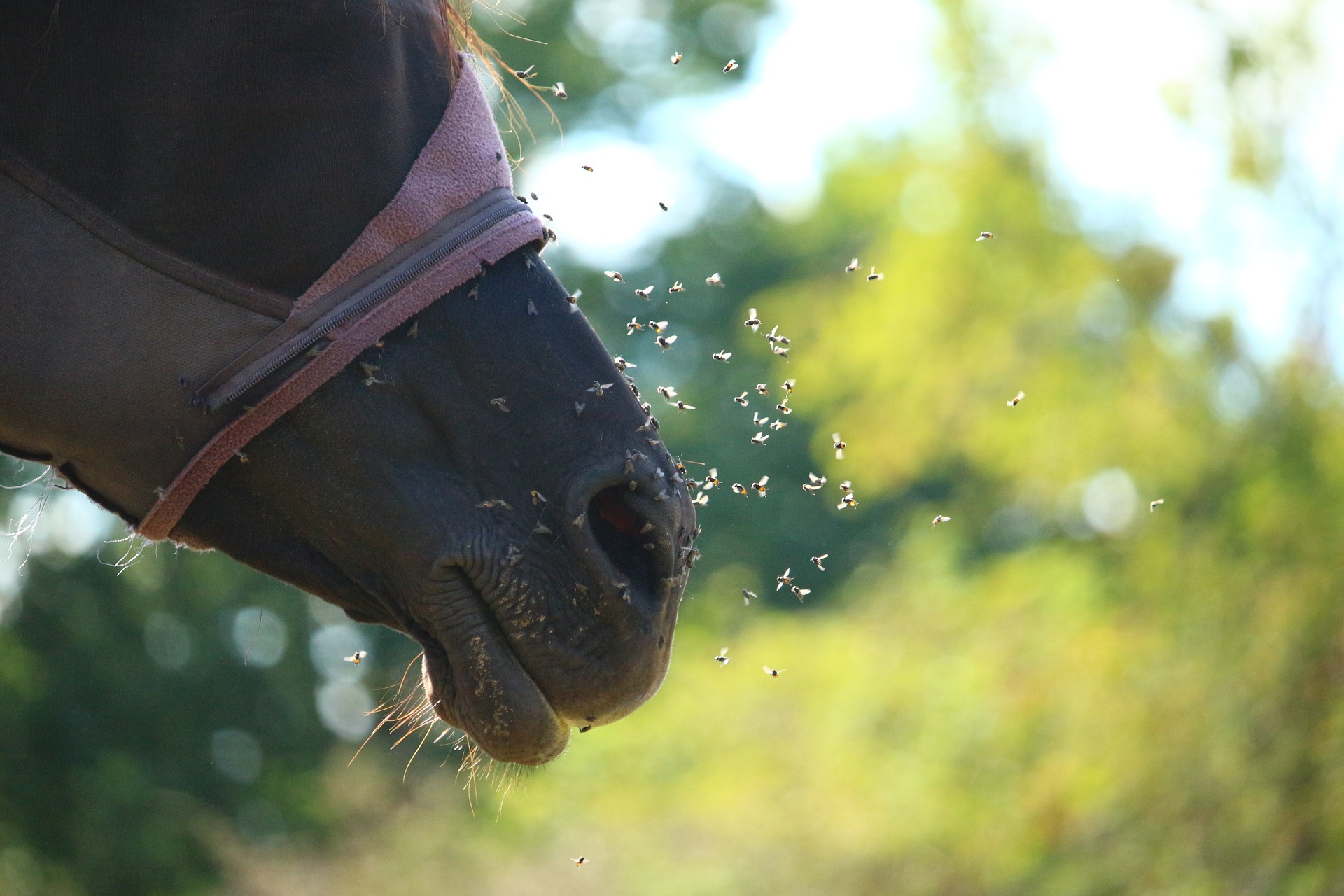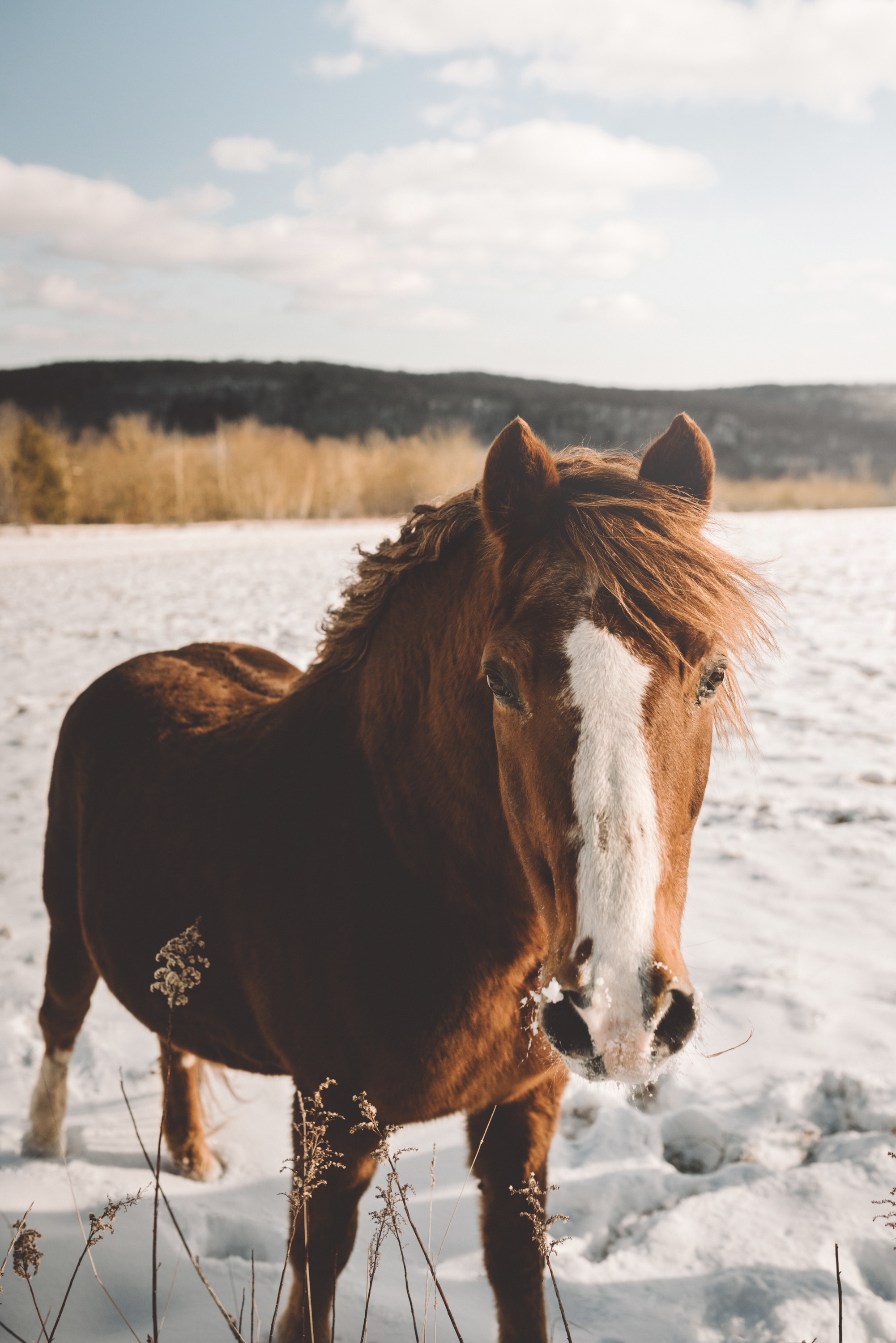How to Put Weight on a Skinny Horse
Putting weight on a skinny horse can be frustrating, challenging and difficult.
However, there are some simple rules and guidelines that can help!

There are any number of reasons a horse will lose weight or struggle to put it on.
Before you spend a lot of time and money on expensive feeds and supplements, make sure to do these things first:
Putting Weight on a Skinny Horse
Call your vet out for a farm visit. Discuss with your vet your concerns about your horse’s weight.
They’ll likely do a few things to rule out:
- float his teeth to ensure he’s able to properly grind his food
- do a fecal count to ensure his parasite load is not too big
- run bloodwork to look for underlying conditions
Once your vet has given your horse the green light, we can begin looking at other issues.
Could it be that your horse is in a herd situation where they’re getting pushed off of all of the best feed?
If your horse is lower on the totem pole, and you have a bully in the field, it could be possible that your horse is being run off of all of the best, highest calorie, nutrient dense food.
What is in their forage?
If they are turned out or given hay, what type of hay?
What type of grass are they eating?
Some grasses are have a higher fat content than others.
What time of the year is it?
Grass that is growing in the Spring will have a higher sugar content than grass that is growing in the Fall – which have a higher starch content.
If your horse looks great in the spring time but that is starting to be ribby by the Fall, chances are they’re not getting enough calories in the grass that they’re consuming and may need to be supplemented by additional forage or grain.
Do they have a higher metabolism?
Thoroughbreds and Arabians tend to have higher metabolism and burn calories faster than say draft horses or quarter horses.
What Type of Feed Should You Give Your Skinny Horse?
First and foremost, your horse’s diet should be primarily, if not exclusively forage – hay or grass.
This is how horses have evolved over millennia, and by feeding them a primarily forage diet you will avoid a host of nasty health issues.
Boiling down the most basic requirements:
- a 900 lb horse needs 13.4 Mcal of Digestible Energy
- a 1100 lb horse needs 16.4 Mcal of Digestible Energy
- a 1300 lb horse needs 19.4 Mcal of Digestible Energy
Now what does that mean? That means that, for maintenance, a horse at that weight, with little or no exercise, needs that amount of digestible energy daily.
If you have a 900 lb horse that should weight 1100 lbs, you’ll want to make sure he’s getting 16.4 Mcal of Digestible Energy.
Nutritional Value of Forage
So how do we get our horses the digestible energy they need?
First we start with forage.
Here are the basic Mcal/lb amounts for some of the most popular forages.
| Alfalfa (pasture) | .31 Mcal/lb |
| Alfalfa (hay) | ~.94 Mcal/lb |
| Bahiagrass (pasture) | .26 Mcal/lb |
| Bahiagrass (hay) | .79 Mcal/lb |
| Barley (hay) | .81 Mcal/lb |
| Bermudagrass (pasture) | .33 Mcal/lb |
| Bermudagrass (hay) | .89 Mcal/lb |
| Kentucky Bluegrass (pasture) | .29 Mcal/lb |
| Kentucky Bluegrass (hay) | .72 Mcal/lb |
| Brome (pasture) | .31 Mcal/lb |
| Brome (hay) | .85 Mcal/lb |
| Fescue (pasture) | .32 Mcal/lb |
| Fescue (hay) | .86 Mcal/lb |
| Timothy (pasture) | .29 Mcal/lb |
| Timothy (hay) | .8 Mcal/lb |
So let’s say I have a 900 lb horse I want to put weight on.
That means I’m going to give him 16.4 Mcal of Digestible Energy a day.
Now say I’m giving him Alfalfa hay at .94 Mcal of DE/lb.
That means I need to give him 17.44 lbs of alfalfa hay a day.
And that’s JUST digestible energy!
Horses also need protein, lysine, calcium, phosphorus, magnesium, potassium, Vitamin A and more!
Now most flakes of hay weigh between 3-4 lbs.
On the low side, for the horse mentioned above, that’s 5.8 or 6 flakes of hay a day.
Now, if you have an older guy, a slower eater, a bottom-of-the-totem-pole horse, they may not have enough time in their day to eat an entire 6 flakes of hay a day.
That’s where adding additional feed comes in.
However, there are so many options when it comes to sweet feed or beet pulp or molasses, etc. that I’ll have to write an entirely separate post about that!
